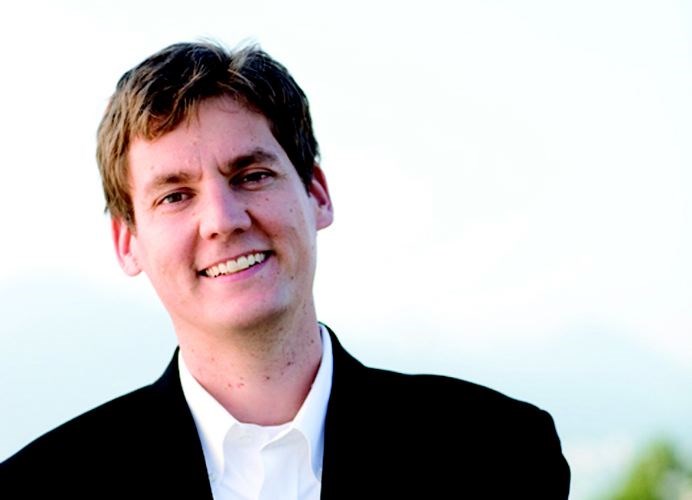College of New Caledonia students are calling for a better education funding model, and they got the personal support of new MLA David Eby, the NDP's critic for Advanced Education.
Eby was in Prince George on Wednesday and attended a CNC event to draw attention to the issue of student debt and what the students called an unwelcome corporate influence seeping into the province's post-secondary institutions.
"We call it debt sentencing. We have a real-time clock calculating the second-by-second increase in Canadian student debt," said CNC student union chair Roxanne Quock.
Eby added that the modern cost of colleges, universities and trades schools was outstripping the ability for people to pay it without taking on large loans, and in many cases the students aren't eligible for loans at all. The result is a large debt load for the students than can get in, and a growing population that can't even get in at all.
"I'm concerned about potential students who can't even get to school," he said, noting that your chances of getting a job improve with a post-secondary credential of some kind, and the wage you get for your job also improves. Those without that education make less, have fewer job opportunities, and are more vulnerable for employment disruptions and prolonged periods of unemployment.
Post-secondary institutions are paid for by four primary sources: student fees, government investment, private donations and investments by outside parties for research or to focus a group of students on a particular skill.
"They [the provincial government and institutions] are pushing for a more corporate-based system, a more privatized model for education funding," said Arnold Yellowman, secretary for the CNC student union.
Although he and Quock were unable to provide examples, or a specific consequence that had happened as a result, they did provide a document - Public Education For the Public Good, written by the Canadian Federation of Students - that contained a chapter on "the commercialization of research" making the claim that the drive to develop research partnerships with the private sector "undermines primary research and long-term innovation" among other negative results.
"I know in Prince George we have seen a lot of our arts programs cut or no longer offered," said Quock. "They say it is because of less enrolment but there is a huge emphasis right now on trades training to satisfy corporate demands for workers but that takes away from society's creative abilities. Cultural development is put on the back burner. We see this as a trend in our community, right now."
Eby criticized the government for "being in a paradox" of spending large amounts of money to advertise trades training but not investing enough in the trades classrooms, resulting in wait-lists of frustrated candidates.
Eby also addressed the claims from members of the provincial government that there are more teachers being trained in the province than there are teaching jobs available, so funding resources ought to be put towards trades classes where there is a student demand and also vacancies on that job board.
"It's a mistake to focus on one profession and say 'we're graduating too many teachers' because you can use your teaching degree for more than just the traditional school system," he said.
LEADERSHIP ASPIRATIONS?
The man who was once the face of the BC Civil Liberties Association may soon be vying to be the face of British Columbia.
Eby, a lawyer specializing in constitutional and administrative law, was the longtime executive director of the province's non-governmental agency dedicated to protecting grassroots personal freedoms. He left that position to run for office.
He won the riding of Vancouver-Point Grey in the May election over Christy Clark and was named the NDP's critic for Advanced Education. He was previously an adjunct professor of law at UBC.
With current NDP leader Adrian Dix stepping down, and a party convention slated for November, Eby was asked if he now wanted the job. At a public appearance in Prince George on Wednesday, he went out of his way to not say no. He mentioned that he had been in discussions with peers and supporters about pursuing the vacancy.
"It is something I am thinking about very seriously," he said, but stressed the "serious" part. He had many factors to consider, he said.



